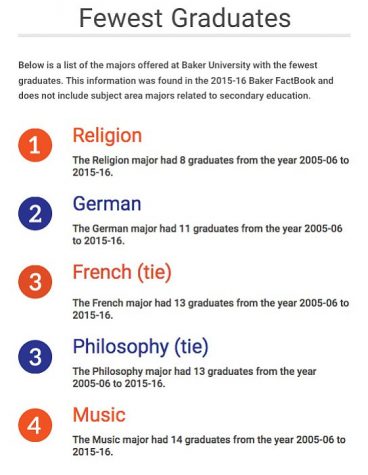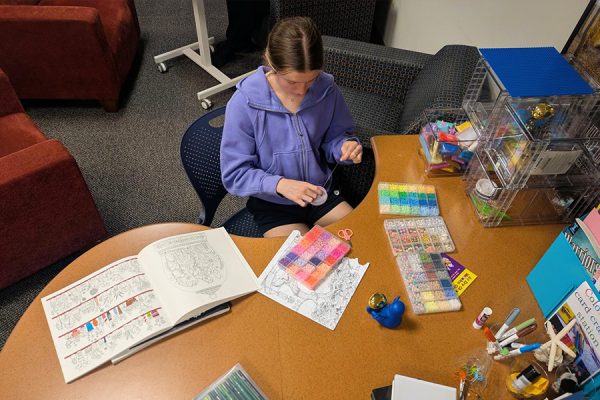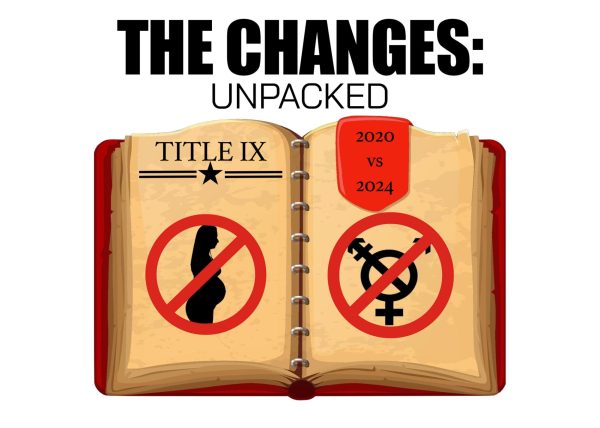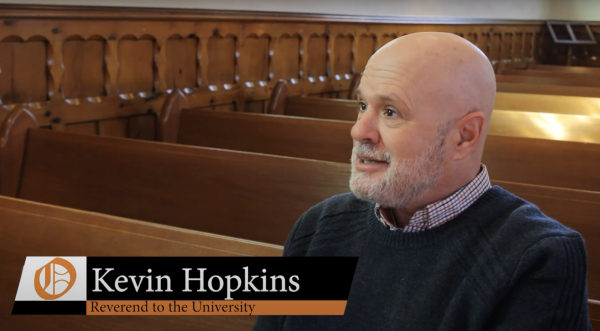Faculty Senate votes to eliminate art history major
Graphic by Krista Porter.
Faculty Senate has voted to eliminate the art history major and minor, although art history classes will still be offered. The decision, which was made at the Feb. 21 meeting, now goes forward for administrative approval.
With only 25 art history graduates in the past 10 years, according to the 2015-16 BU FactBook, art history had one of the lowest graduation totals out of more than 30 majors offered at Baker.
“There has been a national trend of humanities disciplines dropping in enrollment in the recent years,” Joe Watson, who is the chair for the Department of Mass Media and Visual Arts, said. “That is one of the reasons that led to the discussion of eliminating art history as a major offered here at Baker University.”

Watson said he is not aware of any current students who are majoring in art history.
The process for eliminating a major is often problematic. For example, Faculty Senate debated whether faculty members or administrators should be the ones deciding whether to eliminate a major.
“Eliminating a major is not a quick and easy process,” Interim Dean of the College of Arts and Sciences Martha Harris said. “The process does not even begin until an appropriate reason for the elimination of a major arises.”
Harris said the department of the major in question might decide to stop offering the major. A related reason for eliminating a major would be a shortage of faculty to teach courses. The lack of a full-time professor to teach art history classes led Watson to move forward with the process of eliminating it as a major.
“Brett Knappe, the art history professor, left at the end of the 2015 fall semester,” Watson said. “This void forced a serious discussion of the future of the art history major.”
The subject of art history, however, will not be completely taken out of Baker’s art curriculum.
“The plan is to adjust the requirements for the studio art major to keep some exposure to art history,” Watson said. “At no point will art history go away altogether.”
Art history is not alone as a major that Baker has eliminated.
For example, courses in the home economics major were once taught by Jeanne Mott, who is now the senior director of financial aid. She started working in the financial aid office at Baker after the home economics major was eliminated.
“The major was eliminated in 1988 due to a budget cut by the university,” Mott said. “It was not a lack of students interested in the major, but rather that the major was not cost-effective for the university at the time.”
Interior design and fashion merchandising are also discontinued majors in BU’s history.
“The faculty of the major in question can decide to discontinue a major, but that is not the final decision,” Harris said. “The decision then has to go through Faculty Senate, where Baker’s faculty has to vote to approve that decision.”
There is another way for a major to be eliminated. In Harris’s tenure at Baker, she has only seen one major eliminated by the university, not a department.
“Political science is the only major that has been eliminated by the university since I started here at Baker,” Harris said.
Low-enrollment majors may not be in high enough demand to use university funds to continue the program. Watson believes the funds it would take to hire another art history professor could be better used to fill other voids around campus.
“If we cannot fill voids for majors like exercise science, one of the biggest majors on campus,” Watson said, “then where is the funding for hiring an art history professor for one of the smallest majors on campus?”
Even though the art history major will be eliminated, Baker will continue to have an adjunct instructor for classes such as AH11: Survey of Art History, which is still a requirement for current students who are minoring in art. Junior Brittany Tompkins is pursuing her minor in art and is enrolled in Survey of Art History this semester.
“I don’t think that taking an art history class is necessary for my art minor,” Tompkins said. “All of the other required classes are very hands-on.”
Though there are no art history majors or minors currently on Baker’s campus, there are steps in place to ensure that students majoring in a discipline that has been eliminated will be able to finish their major at Baker.
“When students are currently pursuing a major that has been eliminated while they are enrolled in said major,” Harris said, “the faculty of that major continues to ‘teach out’ or offer the classes needed for the students’ graduation so that the student does not have to transfer.”
Baker continues to grow its programs and add new majors to the lineup. Sports administration and multiple biology programs, including human biology, biochemistry and pre-nursing, are examples of thriving programs, along with exercise science, which now has the third highest graduation totals.
“The university is always looking at which majors have successful graduation rates and which majors are not drawing students to enroll,” Harris said. “The university has to consider eliminating majors from time to time, but the main focus of the university is finding areas that can increase Baker’s enrollment.”
For students who are selecting a major, the other side of the spectrum is considering how many job opportunities are available for a specific major.
According to the U.S. Bureau of Labor Statistics, someone with a bachelor’s degree in business can expect to make $65,710 a year. There is a projected increase of 632,400 jobs for this area of study by 2024. Business, being Baker’s most popular major, should provide plenty of opportunity for students’ employment after graduation, making it a valuable major to the university.
Unlike business, art majors can expect to make an average of only $43,950 per year, according to the U.S. Bureau of Labor Statistics. This major area of study is only expected to have an increase of 16,700 jobs nationwide by 2024. Thus, the decision to cut the art history major now may be justified since the job market does not have a high demand for art majors.
“Though eliminating a major does not happen very often,” Harris said, “there comes a time for some majors where the demand for it no longer exists.”







